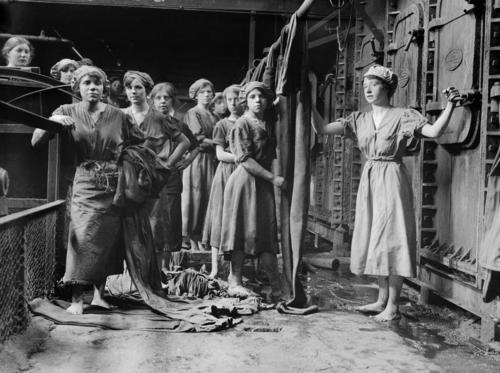Tomorrow is International Women’s Day (IWD). The 103rd time it has been marked, in fact, or possibly the 106th. There are conflicting accounts of what constituted the first one, or where it took place for that matter. But whether you go along with those who favour Chicago in 1908 or New York three years later as the first, it’s now an established fixture on the calendar, recognised all around the world.
Changes
As Minister for both Equalities and the Government’s First World War Centenary programme (not to mention Sport, Tourism, Gambling and the National Lottery), I’ve been thinking recently about the changes that have taken place for women since the FWW.
At the beginning of the war, a little over three million women were in work, and the jobs they did were – overwhelmingly – low paid and in areas like textile manufacturing and domestic service. By the end of the war, though, this number had risen by 50 per cent with very nearly a million women working in munitions factories, while others filled in for vacancies created as men headed for the front. Inevitably, perhaps, this rise in employment drained away as the conflict ended – there was no need for munitions working, of course, and the stand-in positions were reclaimed by the returning men.
Women in work
But a seed had been sown, and assumptions challenged. Today that 1914 figure has increased four-fold and the rate of increase is tremendous, with more than 200,000 more women in work today than a year ago, and 68,000 more self-employed. And before anyone makes the all-too-familiar and grumpy suggestion that these are all part-time jobs and as such, for some reason, don’t count, I would simply point out that during this 12 month period, 270,000 more women started working full time and 71,000 fewer women were working part time.

Childcare was a real issue 100 years ago too. Women then largely had to depend on the hodge-podge of family and friends for that, as indeed they were to do for far too many decades after. These days we’ve introduced things like tax-free childcare and funding to provide it free in some circumstances.
Olympic medals
More generally, the intervening years have seen a remarkable – and splendid – change in attitudes and expectations, not just in women but in society as a whole. Women won the majority of the Winter Olympic medals in Sochi, and women are now increasingly to be found on company boards and in top management. They run successful businesses that they themselves created out of nothing more than a great idea and the steely determination to succeed.
Some of the other achievements of the last 100 years, however, seem rather jaw-dropping when we look at them from today’s perspective. Until 1946, for example, women working in the civil service had to retire when they married; and as recently as 1970 working women were refused mortgages in their own right – only being allowed if they could secure the signature of a male guarantor. And it was only twenty-one years ago the United Nations Declaration on the Elimination of Violence against Women affirmed that violence against women violates their human rights. Yes, just 21 years ago.
Entrenched opposition
So the coincidence of our FWW centenary falling within a few years of the same anniversary for IWD allows us to highlight how far we’ve come, the triumphs that women have achieved and which, all too often, were done so in the face of pretty entrenched opposition. For my part, I think that we as women have done well over the last 100 years, but I’m also in no doubt that there’s much further to go.
And – surprisingly perhaps, but in a spirit of inclusiveness – I’ll give the last word, if I may, to a man: UN Secretary-General Ban Ki-moon:
“Countries with more gender equality have better economic growth. Companies with more women leaders perform better. Peace agreements that include women are more durable. Parliaments with more women enact more legislation on key social issues such as health, education, anti-discrimination and child support. The evidence is clear: equality for women means progress for all.”
Reflect on that tomorrow, and share it with others if you get the chance.
 Department for Culture, Media and Sport
Department for Culture, Media and Sport